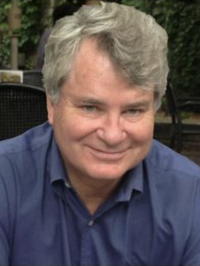

The Minnesota Council of Nonprofits (MCN) was founded in 1987 to meet the increasing information needs of nonprofits and to convene nonprofits to address issues facing the sector. It is the largest state association of nonprofits in the United States. MCN is also a member of the Initiative to Accelerate Charitable Giving. We recently spoke with Jon Pratt, MCN Senior Research Fellow and former Executive Director, about how reforms in charitable giving could advance the important work in of non-profits in Minnesota and across the country.
IACG: Tell us about what the Minnesota Council of Nonprofits does. What are some of the needs that MCN’s nonprofit members seek to address?
Pratt: Minnesota is a remarkable state for nonprofit engagement, with high rates of volunteering, individual and corporate donations. The Minnesota Council of Nonprofits (MCN) grew out of that participation and has grown to be an association of 2300 community organizations sponsoring peer learning, research and cost-saving discounts to strengthen these organizations.
IACG: Our recent analysis found that charities are facing challenges such as economic uncertainty impacting revenues, increasing expenses, and growing demand for services. How, if at all, have MCN’s nonprofit members been impacted by these factors? Are nonprofits and communities in Minnesota experiencing other challenges?
Pratt: For Minnesota nonprofits, the COVID-19 shutdown, coupled with the uprising that followed the murder of George Floyd by Minneapolis police presented a massive challenge to operations and public advocacy. While Minnesota foundations and corporations stepped up to address the immediate aftermath, the longer-term prospects for many of the affected communities continues to suffer from epic uncertainty and persistent racial disparities.
IACG: What do you think are some of the barriers that prevent charitable donations from getting into the hands of working charities faster?
Pratt: Americans give generously to address community needs, but ironically that charitable spirit can be held back by the very systems created to facilitate charitable giving. The tax-preferred treatment of contributions is to the U.S. credit, but too often there are tax loopholes that create unnecessary delays before these funds actually reach their intended public benefit.
Since it is now more than 50 years since the 1969 Tax Act was adopted, this is an appropriate time to reexamine the underlying structures that have helped make the US one of the most generous populations in the world. The 1969 legislation was the first to require foundation accountability, reporting and payout – now it needs a serious update.
IACG: If nonprofits in Minnesota were to receive more donations in the near-term, what do you think would be the impact on communities in Minnesota?
Pratt: The services provided by Minnesota nonprofits would be more effective if the dedicated charitable funds currently sitting on the sidelines could be applied to current community needs. Over the long run, reforms establishing when tax-preferred contributions should actually reach their intended public benefit will rebalance a longstanding time gap and restore trust that these funds are used in a timely manner for their exempt purpose. That is what Congress intended a half century ago with the 1969 Tax Act, and the same policy reasons for transparency and accountability exist today with greater urgency.
Nonprofits organizations in Minnesota are eager to serve their communities, but are continuing to deal with unprecedented workplace costs, skyrocketing demand for services, and increased budget pressures. The reforms backed by the Initiative to Accelerate Charitable Giving would make a make a major difference in making the tax benefits of charitable deductions translate into much-needed resources for Minnesota nonprofits and more services for Minnesotans and communities across the country.
